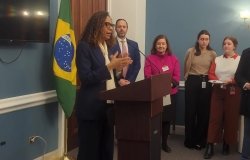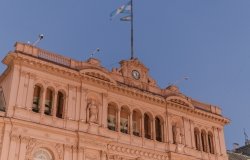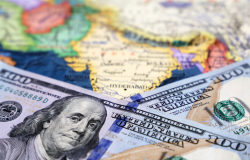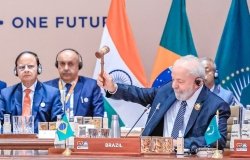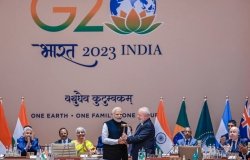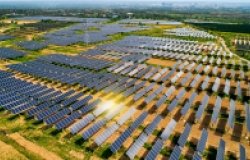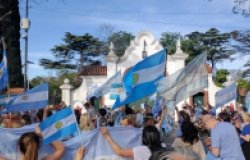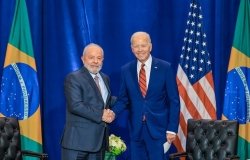
A blog of the Brazil Institute
US House Committee on Foreign Affairs Holds Hearing on Amazon Forest Fires
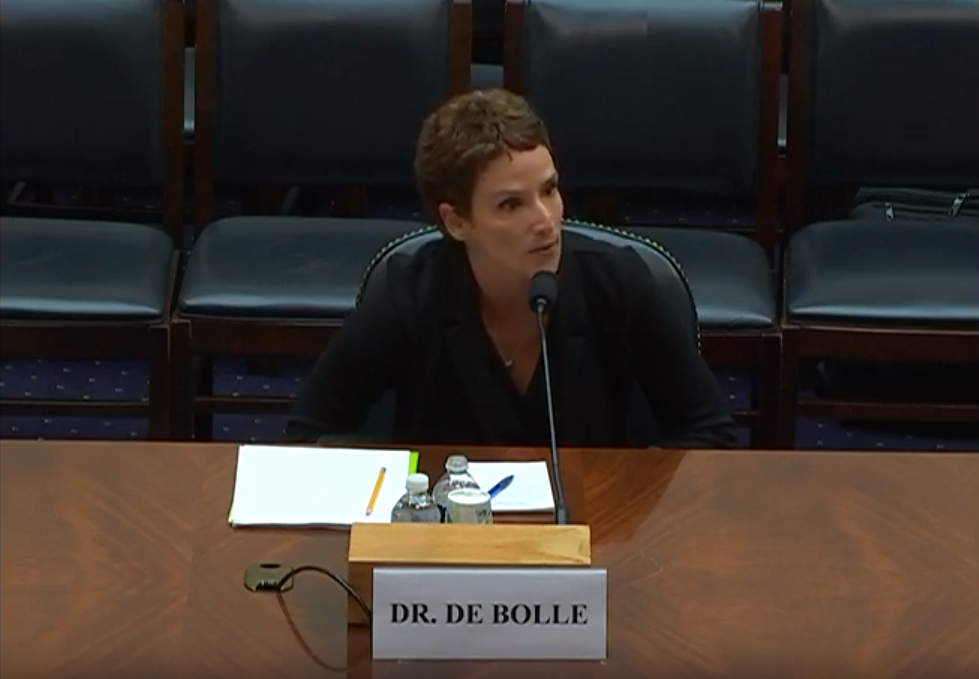
This recent increase in slash-and-burn deforestation and forest fires—highlighted in national and international media—is largely the result of weakened environmental protections and reduced enforcement.
In response to concerns in Brazil and worldwide over the status of the Amazon Rainforest, the United States House Foreign Affairs Subcommittee on the Western Hemisphere convened a hearing on September 10 to explore the risk posed by failure to preserve the forest. The session also examined the Government of Brazil’s response to the fires, and more generally, the potential ramifications of the Bolsonaro administration’s stance on environmental protection.
The hearing, chaired by New Jersey Representative Albio Sires, affirmed that the fires, predominantly set in efforts to clear land for crop cultivation, have grave implications for not only those living in the region, but on indigenous communities as well as global air and waterways. Before moving into witness testimonies, the House Subcommittee chair also asserted that the United States cannot exercise international leadership on environmental policy unless it rejoins the Paris Climate Agreement.
Witnesses included Dr. Monica de Bolle, former Brazil Institute Fellow and current Director of the Latin American Studies Program at SAIS, Johns Hopkins University; Dr. Daniel Nepstad, President and Executive Director of the Earth Innovation Institute; and Mr. Bill Millan, Chief Conservation Officer and Director of Policy at the International Conservation Caucus Foundation (ICCF). Speaking in turn, each witness emphasized a number of resounding themes: first, that the Brazilian government’s policy choices are the principal driving factor in mounting deforestation; second, that the primary role of the United States should be to provide financial incentives for preservation—including through existing mechanisms like the Amazon Fund; and third, that China’s growing demand for soy and beef could exacerbate the challenge of deforestation.
The witnesses noted that Brazil felt it was denied the compensation outlined at the 2009 Copenhagen Climate Change Conference, where developed nations pledged billions in sponsorship for greenhouse gas-reducing efforts: this funding never appeared in full. The witnesses also stressed the successes of previous programs adopted by Brazil’s Environment Ministry, such as the 2004 Action Plan for the Protection and Control of Deforestation in the Amazon (PPCDAM), which created ecological reserves and improved land-use monitoring practices. The PPCDAM reduced deforestation by as much as 60 percent between 2004 and 2016. Finally, the witnesses recommended that the United States use its favorable relations and trading position with the Bolsonaro administration to encourage change within the Brazilian government regarding its approach to the Amazon’s preservation.
They noted that there is strong domestic support for this effort: The vast majority of Brazilians have reported concerns over the continual deforestation of the Amazon Rainforest. Furthermore, 84 percent reported believing that the Amazon is an essential part of the national identity. The Amazon represents 40 percent of rainforests globally and although fires occur every dry season, this year the number of fires in the Amazon Rainforest is 84 percent higher than in 2018, according to Brazil’s National Institute for Space Research (INPE).
For a full webcast of the hearing and transcripts of the testimonies, click here.
About the Author

Brazil Institute
Read More
Brazil Institute
The Brazil Institute—the only country-specific policy institution focused on Brazil in Washington—works to foster understanding of Brazil’s complex reality and to support more consequential relations between Brazilian and US institutions in all sectors. The Brazil Institute plays this role by producing independent research and programs that bridge the gap between scholarship and policy, and by serving as a crossroads for leading policymakers, scholars and private sector representatives who are committed to addressing Brazil’s challenges and opportunities. Read more


